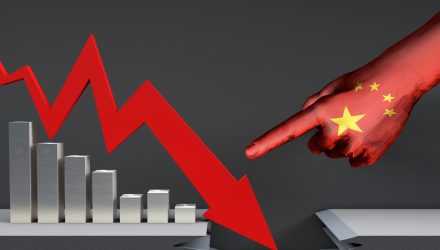The game of high stakes poker in the form of trade negotiations between the U.S. and China could reach unforeseen heights. In fact, China could be more willing to face the pangs of an economic downturn rather than give in to U.S. President Donald Trump and his trade demands, according to some analysts.
It’s part of a strategy where China is willing to accept the attrition of hurting domestic businesses to hold out for a more favorable trade deal. An ideal scenario if President Trump is not re-elected in 2020.
“Many investors have expressed the view that China is prepared to accept an economic downturn (and thus a global economic downturn) to prevent President Trump’s reelection,” Naka Matsuzawa, Nomura’s chief rates strategist in Tokyo, said in a note on Wednesday following meetings with Asian clients.
China’s willingness to hold out for a deal was shown in their aggression with counteracting Trump’s latest tariffs. The second largest economy withdrew itself from purchasing U.S. agricultural products, which could hurt Midwest farmers who rely heavily on Chinese purchases—a move that could put Trump’s re-election in 2020 in jeopardy.
It’s a heady gamble for China as holding out for a trade deal could have dire ramifications. U.S. measures against China could get dual support from Republicans and Democrats, which could help Trump’s re-election efforts.
In addition, a destabilization effect of China’s economy could result. China’s second-quarter GDP growth represented its lowest in almost 30 years and on top of that, it’s dealing with growing protests in Hong Kong.
“A downward shift in China’s potential growth rate means that the debt deflation problem could come out into the open,” Matsuzawa said.
Typically, these measures could be counterbalanced by further government stimulus packages, but according to analysts, China may not be as aggressive on these as they have been in the past. Nonetheless, it puts China exchange-traded funds (ETFs) in focus—to buy or not to buy?
While companies can gain access to the largest companies in China via the iShares China Large-Cap ETF (NYSEArca: FXI), there is one caveat–the majority of the holdings in the guts of the ETF consist of state-owned enterprises where the government prevents full autonomy of these companies.
Ongoing trade negotiations between the U.S. and China, which have revolved around a wide range of issues, such as forced technology transfer and now the withdrawal of China purchasing U.S. agricultural products. The tariffs were meant to force China’s hand in changing its business practices, particularly when it comes to issues, such as intellectual property–all as a means to get China to open up its economy to more foreign investors.
As such, one ETF to consider is the Xtrackers Harvest CSI 300 China A ETF (NYSEArca: ASHR) as a way for investors to gain exposure to China’s biggest, best and most authentic equities. The fund is up 32 percent thus far YTD.
ASHR seeks investment results that track the CSI 300 Index that is designed to reflect the price fluctuation and performance of the China A-Share market. In essence, it’s composed of the 300 largest and most liquid stocks in the China A-Share market, including small-cap, mid-cap, and large-cap stocks.
For more market trends, visit ETF Trends.


